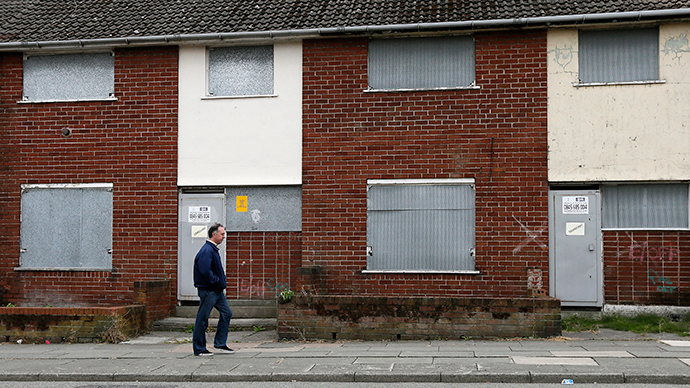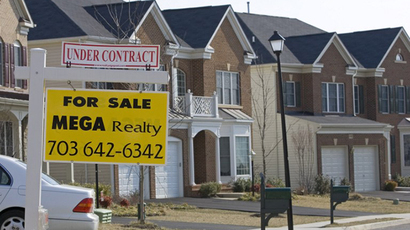House homeless twice over: Outrage in Europe over 11mn empty homes

Around 11 million homes across Europe are empty or not in use – a number that could house all the EU homeless twice over, British media report. Housing campaigners who lobby for the rights of the poor have called the finding a “shocking waste.”
Among the frontrunners with vacant houses are the UK with 700,000 homes; Germany with 1.8 million; France with 2.4 million; and finally, Spain with some 3.4 million homes which are languishing without tenants. These figures are a result of data collated by The Guardian.
What’s more, the high figures are growing at an alarming rate. In France the number of empty houses has gone up by nearly half a million since 2009.
The above aren’t the only countries with a bad record. Greece and Portugal, whose economic situations are arguably far worse than the aforementioned countries, are not far behind in numbers.
Before the financial crisis of 2007-08 came the housing boom. People were buying up properties, a large number of which were in the luxury sector.
Moreover, a substantial number of the homes were never even meant for occupation; they were simply investments. Furthermore, some half-built homes were bulldozed in an effort to drive up the price for the remainder.
Housing campaigners called the large numbers a “shocking waste,” especially at a time when there are more homeless on the streets than ever before. One lobbyist with the Empty Homes charity told The Guardian that “it’s a massive number” that “will be shocking to ordinary people.”
“Homes are built for people to live in, if they’re not being lived in then something has gone seriously wrong with the housing market,” David Ireland continued, also saying that policy-makers needed to take urgent action against wealthy buyers who use homes solely as “investment vehicles.” As the newspaper also pointed out, citing estate agent Savills, the trend is very strong in London, while prices since the 2007 crisis have gone up by a staggering 27 percent. And the practice and price hikes are becoming a Europe-wide habit.

Ireland went on to explain that with Europe’s 4.1 million homeless – according to EU statistics – the problem could be solved twice over. But instead, as Maria Jose Aldanas of the Spanish housing association pointed out, Spain is undergoing more evictions and repossessions and the situation is actually heading in the opposite direction.
FEANTSA, a European body that unites all other organizations dealing with homelessness on the continent, joined the chorus. Its director, Freek Spinnewijn, recommended that “governments should do as much as possible to put empty homes on the market. The problem of homelessness is getting worse across the whole of the European Union. The best way to resolve it is to put empty homes on the market.”
Attempts to realize that idea have been made. Just last month, Euro-MPs demanded that the European Commission come up with a strategy dealing with homelessness, and do so quickly. The motion received an overwhelming majority of 349 to 45 votes.
While according to director of policy at the UK Chartered Institute of Housing, Gavin Smart, much of the housing stock has fallen into disrepair (or are simply in areas without a thriving economy), but a large number of properties could be used to rectify the housing situation right now.
Sometimes, it is not the countries with large numbers of empty homes who are entirely at fault. This is illustrated in the example of Spain. Most of its luxury, seaside homes were bought up by the British and the Germans. The wave of buying at the peak of the property boom has helped raise the number of empty houses by 10 percent, compared to the last decade. But that was to be expected, since, with prices going up by 44 percent, builders saw great opportunities to make a quick buck and knocked out around 800,000 homes annually.
There is no one single cause for why this happens, but specialists in housing and homelessness have told the Guardian that a bolder approach is needed to developing affordable solutions, because across Europe the numbers of empty homes have increased by as much as 35 percent in under 10 years, as in Portugal.














